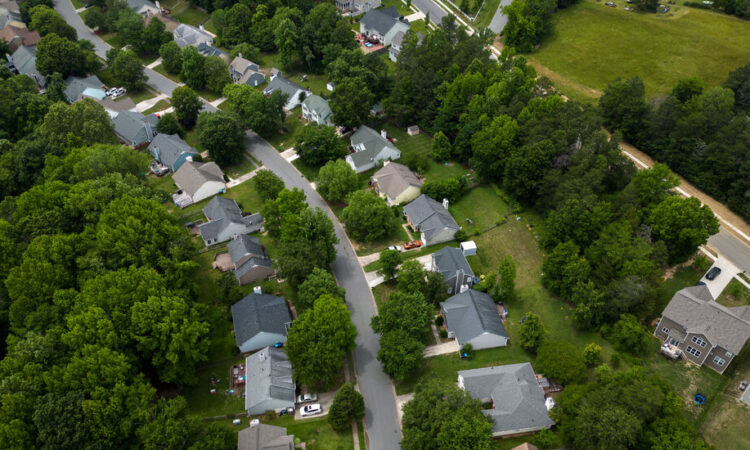
Democrats in Congress have introduced a bill in both houses of Congress on Tuesday to ban hedge funds from buying and owning single-family homes in the United States.
The bill would require hedge funds, defined as corporations, partnerships or real estate investment trusts that manage funds pooled from investors, to sell off all the single-family homes they own over a 10-year period, and eventually prohibit such companies from owning any single-family homes at all. During the decade-long phaseout period, the bill would impose stiff tax penalties, with the proceeds reserved for down-payment assistance for individuals looking to buy homes from corporate owners.
If signed into law, the legislation, called the End Hedge Fund Control of American Homes Act of 2023, could upend a growing sector of the housing market, and potentially increase the supply of single-family homes available for individual buyers. Homeownership, long a cornerstone of generational wealth in the United States, is increasingly out of reach for Americans as home prices and interest rates soar.
“You have created a situation where ordinary Americans aren’t bidding against other families, they’re bidding against the billionaires of America for these houses,” said Senator Jeff Merkley of Oregon, who introduced the bill with Representative Adam Smith of Washington. “And it’s driving up rents and it’s driving up the home prices.”
In separate legislation, Representatives Jeff Jackson and Alma Adams of North Carolina, both Democrats, introduced the American Neighborhoods Protection Act on Wednesday. That bill would require corporate owners of more than 75 single-family homes to pay an annual fee of $10,000 per home into a housing trust fund to be used as down payment assistance for families.
With a divided Congress, the bills are unlikely to pass into law this session. But Mr. Smith said legislators needed to start a conversation.
The bills were introduced three months after The New York Times published a story examining the impact of corporate-backed investment on Charlotte, N.C., where, in 2022, investors purchased 17 percent of the city’s homes in cash, often outcompeting first-time buyers who rely heavily on mortgages.
In a pattern repeated in cities around the country, corporations focused on modestly priced houses, frequently in neighborhoods with large Black and Latino populations, and converted the properties to rentals. In one neighborhood in east Charlotte, Wall Street-backed investors bought half of the homes that sold in 2021 and 2022. On one block, all but one home that sold during that period sold in cash to an investor who rented it out.
Wall Street entered the single-family rental market in the aftermath of the 2008 housing crisis, plucking up homes in foreclosure. Its influence has been growing ever since. By June 2022, institutional investors owned 3 percent of all single-family rentals nationwide, but in more affordable markets they owned a considerable market share; in Charlotte, they owned 20 percent, according to the Urban Institute. Even as the housing market slows, investors have remained active, buying 26 percent of the single-family homes that sold in June 2023, according to CoreLogic, a data analytics company.
“Wealth has become concentrated in the hands of very few people,” Mr. Smith said in a telephone interview. “This is just another way to do that — to commoditize housing so that investors get all of the money.”
Wall Street is not the problem, a lack of new housing is, according to David Howard, the chief executive of the National Rental Home Council, a trade association. The country needs anywhere from 2 million to 6.5 million units of new housing, according to various estimates.
“Policies really need to be shaped and crafted so that they support the production, investment and development of new housing,” Mr. Howard said. “I think bills that work against that ultimately are just going to perpetuate the challenges we’re already facing.”
